This is the third and final part of a three part series of podcasts with Dr. Alex Vasquez, DO, ND, DC. Be sure to check out the first and second episode with Dr. V as well.
Dr. Vasquez is the most prolific human I know. He holds 3 different doctorates and is on the board of The Institute for Functional Medicine.
In this final part of my interview with Dr. Vasquez, we talk about Dr. V’s 4 part protocol for the treatment and prevention of viruses… including corona viruses.
We talk about several supplements, herbs, and natural compounds that can be supportive. We talk about compounds to strengthen barriers and to strengthen immune response. We also talk about things we can do to inhibit viral replication and support systemic health and mitochondrial function.
This interview is jam packed with powerful tools that people can use right now to improve their health! What YOU can do to EMPOWER YOURSELF!
In response to Dr. Vasquez’s book being taken down from Amazon, he has made the pdf available for only $3 right now, and you can get that book here: https://inflammationmastery-com-ichnfm-org.dpdcart.com/product/192836
A transcript of this interview has since been published in the International Journal of Human Nutrition and Functional Medicine and you can download the article here: https://www.academia.edu/42330017
If you guys are interested in a Q and A let me know in the comments.
Resources:
- Dr. Vasquez’s Links
- AntiViral Nutrition: https://inflammationmastery-com-ichnfm-org.dpdcart.com/product/192836
- Transcript of our conversation: https://www.academia.edu/42330017
- Antiviral Supplements:
This episode is brought to you in part by Feed a Brain. Learn more at feedabrain.com
Wanna be a sponsor of the Adventures in Brain Injury Podcast! Send me a email: support (at) feedabrain.com
Like the show? Support us for $1.00 an episode.
___________________________________________
TRANSCRIPT:
Dr. Alex Vasquez: So, what can people do? Sure, social distancing—I recommend it as a lifestyle, not simply in response to pandemics. That’s a little bit of a joke. But, you know, the next step is … here’s the thing. Let’s just go back to Algebra and Geometry. You know? I think I studied that when I was 14 or 15-years old. One of the only things beneficial to learning anything about math beyond basic math is when we have to solve equations that have two variables. If you have a single equation that has two variables, you’re going to have a very hard time figuring out the solution. But if you have … if you have an equation that has one variable, you usually can figure it out. You just look at it and you just run the thing backwards and sideways and you figure it out. In this case, here’s my point. In this case, we’ve got an equation that has two variables and we cannot solve that equation because we don’t know what X is and we don’t know what Y is. Yet, with more time, we’re going to figure out what X is—let’s just say X is the virus in this conversation. In more time, they’ll do more tests, more studies, and we will be able to characterize this virus. We’ll be able to say, “Oh, yeah, it’s really contagious” or whatever. But again, like I said about the word contagious—you can’t read that word or say the word contagious without respecting the fact that it represents a relationship. So, nobody…no intelligent person, if I can go that far with it, no intelligent person who really is trying to talk about this and communicate…no one can say that X is contagious or whatever. I mean, we can kind of say that in some senses. Some viruses are more contagious than others, that is a fact. But, it always depends on the host, as well. HIV-AIDS, for example, isn’t really very contagious, thankfully. I mean, sure, people can pass it on to each other, but it’s not radically contagious. Hepatitis C is very contagious. Measles is very contagious. So, those are viruses that, – that typically win the initial battle and are able to gain entry into the host. They have a good chance of getting in and starting an infection. But again, we still have to look at the host factors, and that’s the other variable in the equation.
Dr. Alex Vasquez: So, X is the virus, and Y is the human variable. Right now, we don’t know how to define X, but we can do some things to help define Y. And we can take action to help to strengthen our own defenses. Step number one in my Antiviral Nutrition book is strengthening barriers so that our skin and mucosal membranes are well defended. So that requires nutrients such as Vitamin A, Vitamin D, Zinc, also B-vitamins, of course. Step number two is what we can do to inhibit viral replication. What can we do to inhibit viral replication? I know how to inhibit viral replication using nutrients because I’ve studied it now for 10 years. So, we can do certain things to inhibit viral replication. Some of those strategies work better for DNA viruses versus RNA viruses, but they all still work to some extent. Coronavirus is an RNA virus, so it might be a little trickier. Step number three in my program is strengthening immune defense and that’s what we talked about—that’s what you and I have mentioned a few times back and forth. That’s not the same as strengthening barriers. So, barriers is step number one. Step number two is replication. Step number three is immune response. Immune response has two broad components to it. Immune response is immune defense, which is your immune system attacking the virus or creating antibodies or engaging in cell-mediated immunity. That’s immune defense. But the immune response has another component and that is the ability of the immune response to self-regulate and reduce excessive activity of the inflammatory response. So, for example, in the medical model, you want a strong immune response. That’s why they put adjuvants in the vaccines. They are trying to create more inflammation. But the reality is actually different from that. You want to strengthen defenses, but you also want an antiinflammatory component to that response.
Cavin Balaster: You want to mediate that response.
Dr. Alex Vasquez: Right, you want to mediate it. You want to modulate it. You want to control it. You want to promote tolerance. At the same time that you’re promoting defense, you also want to promote tolerance. Well, shazam! That’s what we can do with nutrition that we can’t do with drugs. So, for example, Vitamin A strengthens defenses, but it also promotes tolerance. Vitamin D promotes defenses, and it promotes tolerance. N-acetylcysteine (NAC, acetylcysteine) is another really good example. N-acetylcysteine promotes tolerance, and it promotes immune defenses at the same time. So, here we are in this current situation: we’ve got this virus that we haven’t completely defined. We don’t understand it. Nobody understands it completely. Yes, eventually they’ll define it, and they’ll give us some descriptions. None of that is going to change the fact that we can still modulate the human part of that equation now. We could immediately emphasize certain treatments or certain nutritional supplements more than others based on previously studied infections. So, for example, for Herpes infections, the licorice root extract glycyrrhizin works very well, and for SARS infections—I’m talking about SARS-1 in this case—licorice also works quite well. In the case of SARS-1, licorice has been shown to inhibit viral entry and it also inhibits viral replication. With herpes virus infections, licorice works extremely well through a slightly different mechanism in that it supports immune defense against the Herpes through increased production of interferon but also the component of licorice called glycyrrhizinic acid or glycyrrhizin actually appears to bind directly onto the herpes virus. In that sense of targeting the virus directly, licorice functions almost like a drug against herpes virus. It’s almost like a target getting hit with an arrow. Therefore, if licorice’s glycyrrhizinic acid binds to and inhibits the herpes virus particle directly, that’s not necessarily also true for influenza virus or hepatitis virus or HIV. So, like I said previously, viruses have their characteristics and our treatments also have their own characteristics, which may apply more or less to a given type of infection. – But, regardless of that, certain things—like I said at the start—certain things aren’t going to change. You have to have zinc in your system in order to have a competent immune response. Zinc is directly antiviral for viruses such as rhinovirus, but also, zinc specifically inhibits one of the coronaviruses.11 Let me go to the fourth point and then I’ll summarize. The fourth part of the overall treatment strategy is supporting and restoring cellular health and also systemic health. Again, the naturopaths do a really good job of that. The osteopathic profession actually has some good research on that, as well. In osteopathic medicine, we have certain treatments within osteopathic manipulative medicine that have been shown to help people get over pneumonia12 , for example. It’s not a drug. It’s a manual manipulative treatment. It’s not chiropractic. It’s not massage. It’s a specific osteopathic manual medicine technique that targets fascia and lymphatic flow. So, again, and I’m going to summarize the four components one more time.
1. Step number one of my plan is addressing the virus; either trying to kill the virus or blocking its entry.
2. Step number two is inhibiting viral replication.
3. Step number three is supporting immune response. Immune response has two components; one is defense and the other is controlling inflammation. So you don’t want all the inflammation to just go crazy like napalm. You need to have control over that inflammation. If the inflammation’s not controlled, that’s when people get into sepsis, and acute respiratory distress syndrome, ARDS, which is what kills people with pneumonia and pneumonia-like condition and influenza and et cetera. That’s the whole cytokine storm. You don’t want a cytokine storm. You need to have some control over this inflammatory process, and nutrients can help provide that balance.
Cavin Balaster: Right. That’s the modulation of the immune response.
Dr. Alex Vasquez: Right, and then…
4. Step number four is supporting cellular machinery like mitochondrial function which are I’ve also written on13 and lymphatic flow and vagal tone. I’m sure all your people know about vagal tone.
So, you know, those are things we can do. We can do them right now. We can do them safely. We’ve got good evidence to support it and so those are things people could do while they are sitting around. Learning is optional, and it’s available all the time. Right now, we have millions of people stuck in their homes, and they have no idea what to do with themselves. They are watching YouTube. They are arguing with each other and maybe they’re doing some good things like, exploring their childhood traumas, or, you know, fixing the garage, or whatever, or learning a new language. Probably, some people are using their time wisely. I’m not saying that everyone’s wasting their time. But one of the things people could be doing during this time is reading about Antiviral Nutrition. Imagine what the world would be like if people actually read about the problem that is the cause of their quarantine, while they are in quarantine, so they can help avoid the next quarantine.
Cavin Balaster: Yes.
Dr. Alex Vasquez: Shazam! They could learn about Antiviral Nutrition now so that they are not going to be victims to this narrative for the rest of their lives.
Cavin Balaster: They could empower themselves. Absolutely.
Dr. Alex Vasquez: Right.
Cavin Balaster: We need to empower ourselves and what’s awesome is we have this amazing resource called the internet that, that can bring us really brilliant things and I love that I found you and found your writing and clearly, you make your concepts understandable with, with enormous amount of metaphors. You’re the metaphor king right now. I’m so appreciative. So, so just to recap, number one, prevent the virus from getting in which is building up our barriers.
Dr. Alex Vasquez: Right.
Cavin Balaster: Our gut barrier, skin barrier, our lung barriers. There’s a nutritional component to that for sure.
Dr. Alex Vasquez: Yes. Absolutely. So, you know, if you’re trying to prevent this virus from getting into you, social distancing, hand-washing, that’s part of it and those are reasonable parts of it. If you can disinfect certain surfaces, that’s great. And, if you can strengthen the barriers, like you were just saying, to block the entry of the virus, then obviously that is an important part of defending yourself. Let’s say you’re walking down the street and somebody sneezes on you and you’ve got the virus in your mouth or in your nose. If you have strong barriers, and if you have certain nonspecific immune defenses on those barriers, then you’re less likely to get the infection. Part of that barrier defense is called antimicrobial peptides (AMP), and your body can only make antimicrobial peptides if you have enough vitamin D. So all of these institutionalized elderly patients who are vulnerable to this infection, at least 80% of them are vitamin D deficient. Of course they are going to be vulnerable to this infection if they are nutritionally deficient—if they are kept in a perpetual state of deficiency-induced immune suppression. They are all institutionalized. They live indoors where they are deprived of sunshine so that they cannot make vitamin D in their skin from sun exposure. So anyway, virtually 100% of those people are vitamin D deficient. If they are vitamin D deficient, they are not going to create antimicrobial peptides and that’s going to make them more susceptible to this problem. Well we can either let that go as it is, or we can fix it.
Cavin Balaster: Right. We can supplement with vitamin D or we can go outside or both.
Dr. Alex Vasquez: Right.
Cavin Balaster: The immune system regulating, having it turn on [defense] and having it mitigate itself [tolerance]. Building up our cellular and systemic health, our mitochondria—things of that sort. And this all points back to nutrition and we’re talking about vitamin A. How that amps up, it strengthens our immune system and it regulates our immune system. Vitamin D, same thing. Oh, and also licorice, zinc and selenium are three more things as well. Am I missing anything?
Dr. Alex Vasquez: All of those are good and we can do other things in addition to those. Sometimes drugs—some drugs have been shown to be effective, like against Ebola for example. We have many other nutrients and botanical medicines that we can use in various situations, such as elderberry and lemon balm. However, we have to talk about risk, too. We can’t just be pollyannic about this. We can’t just say, “Nutrition is going to save the day” even though it probably could if it were used strategically. So, let me just very briefly talk about risk involved with some of these nutritional treatments. The two that we really have to talk about to have a responsible conversation are vitamin A and licorice. Vitamin A is one of the only nutrients that really has a risk associated with consuming it at the therapeutic dose. The risk of vitamin A is that it can be toxic to the liver and have some other consequences as well. So you have to be careful with vitamin A toxicity. You have to know how to dose it correctly. You have to know what to look out for in terms of toxicity. As a general rule, people should not supplement with vitamin A at high doses for more than a week. So for example, when I was treating patients on a more regular basis, I learned through experience that I had to tell people, “You’re sick now, you’re doing this nutritional program now, but you’re not going to do this program forever” even though in some cases they might use a similar plan for longer duration. If people are going to use high dose vitamin A, they need to limit that to five or seven days, maybe 10 days. The toxicity of vitamin A looks like bone pain, head pain or headache, dry skin, chapped lips, and then some other abnormalities on laboratory tests that are indicators of liver toxicity. People have to be aware of the potential toxicity of vitamin A; some people get toxic with vitamin A starting at 25,000 international units, and that’s a pretty low dose. So again, people have to be aware of that. With licorice, a glass or a cup of licorice tea is a therapeutic dose of licorice. This is licorice tea [showing glass of tea] that I am drinking right now. This is licorice root steeped with hot water for 10 minutes, and then it creates this yellow, amber-colored beverage. This is what licorice tea looks like [see video]. A cup of licorice tea is a therapeutic dose of glycyrrhizin which is about 32 milligrams of glycyrrhizin, and for some people that can also be a toxic dose if they were to consume that for more than two weeks. The consequence of licorice, – which sometimes is a benefit, is that it causes potassium depletion and it can cause hypertension. So again, you and I can talk about licorice, we can talk about licorice inhibiting viruses and blocking SARS replication and blocking herpes viruses, etc. All that’s true, but that doesn’t mean we can live off of licorice without appreciating the possible adverse effects. Licorice, if consumed in excess, can cause potassium depletion and it can cause hypertension. That’s true of the root which I use to make a tea, but it’s also true of licorice candy. Some people can get toxic from licorice by consuming licorice candy as well. Everyone knows the cliché of “everything in moderation”, and sometimes people get hurt by these things, and sometimes people get lucky. I went through a period of my life about 23 years ago when I was drinking licorice tea every day because I had adrenal failure, which was traditionally treated by licorice before drugs were developed for its treatment. I was drinking licorice tea every day, and I didn’t have any problems with it, but I could have had problems with it because I was drinking a lot of very strong licorice tea. I got lucky, and some people don’t get lucky. Licorice toxicity from tea can occur within 1-2 weeks of drinking licorice beverages, depending on the strength of the concentration.
Cavin Balaster: Zinc and copper. What about copper?
Dr. Alex Vasquez: Yes, this is important, and I have discussed this in the recent 1-hour video available online https://www.inflammationmastery.com/antiviral2020 and excerpted at https://www.youtube.com/watch?v=R2jxtxTs9lA and https://vimeo.com/396264153. When people consume high-dose zinc in the form of nutritional supplements (unless they are eating raw oysters every day), when we approach a dose of 30-50 mg per day, especially for longer durations, we start to be concerned about zinc causing impaired absorption of copper. So, for people consuming zinc in that range, they should probably should take some extra copper, between two to four milligrams. If a person is zinc deficient and they are immune suppressed because of the zinc deficiency, in the process of giving them extra zinc, we could end up blocking the absorption of copper. The first consequence of copper deficiency is immune suppression. I call this the “zinc paradox”—the paradox is if we give someone zinc to support their immune function, if we give them too much without balancing that zinc with copper, then we actually cause immunosuppression via copper deficiency.
Cavin Balaster: Gotcha. Gotcha. All right, so we have some tools too to empower ourselves with—Nutrition. I’m really looking forward to diving into your book and I will be posting that down below. What else are you working on these days?
Dr. Alex Vasquez: Well, right now, only this, and you could share these videos with your people as well. I actually was thinking about updating the Antiviral Nutrition book last year and I had created two videos last year, both of which are available online https://www.InflammationMastery.com/antiviral for free. One was a review of the entire protocol (one hour) and the other was focused exclusively on N-Acetyl-cysteine, NAC or acetylcysteine (two hours). So those are on my website site. My website, by the way, is inflammationmastery.com forward slash antiviral is where people can find that information. People can watch these videos for free. I think they can actually download the videos for free as well. I mean, I don’t really care. I just want people to get the information. So those are ways, as you had just said, that people can empower themselves. But again, empowerment doesn’t mean being all powerful. Empowerment just means you’ve got some tools in your bag and you have some things you can do. That doesn’t mean it’s going to work every time for every person in every situation. But generally speaking, we have good science, we have documentation of effectiveness, and we have the experience of use and safety. So, we don’t simply have “things we can do”; I mean, we could do anything. We could dance in circles and try to solve our problems. But in this situation, we have effective things we can do. We have things that are proven to work. And just like with drugs we use them and we hope it works and if it doesn’t work, sometimes we raise the dose or lower the dose or we add something else. But these are things we can legitimately use for ourselves and offer to our patients and clients. –
Cavin Balaster: Perfect. Yes. I want to say again how grateful I am to have this conversation with you and for all the work you’ve done. It has been extremely helpful for me in my recovery and continues to be. I love that your presentations are so concise and that every presentation you put out, the viewer can walk away with tools and actions that they can use right away. I am super-appreciative of your work, how you really evolve medicine in so many ways and evolve the practices of so many others. Your reach is exponential and it’s just, it is such pleasure to have you.
Dr. Alex Vasquez: Thanks. Thanks for the invitation. On a personal level, I’m glad you and I finally got to talk. It’s been a while. Obviously, I saw you in 2013 and then I saw you again last year at the conference in Houston (Texas, United States). Even in those situations, we didn’t have a lot of time.
Cavin Balaster: Real quick, let me tell the story of 2013. In doing some research, I saw that changing my nutrition helped improve my condition. So I was like—wow—what’s this functional medicine stuff about? And I was Googling functional medicine all over the place and your name kept coming up. And I started reading your stuff and you had videos online as well that I think you were an Adjunct Professor at Bastyr University at the time. And you were making videos, video lectures available to your students. And I was able to watch these college-level lectures from this brilliant man right here and learn from them and then use what I learned, start implementing what I learned in order to restore my health. And I reached out to you, I think Facebook actually suggested you as a friend. I sent you a message and I just was thanking you for the online resources. Told you a bit about my story, and you invited me to the International Conference on Human Nutrition and Functional Medicine in 2013, which you directed.
Dr. Alex Vasquez: Right.
Cavin Balaster: And while I was at that conference on the brain day, you had a whole day dedicated to the brain. I remember when you sent me that message: I was recovering at my mother’s home and I was like, “Mom, we have to go to this!” And she got me there and I’m super appreciative of that as well.
Dr. Alex Vasquez: Yeah, it was a good experience. We had you up on stage too, as I’m sure you remember.
Cavin Balaster: Yeah. And that’s, that’s really, that’s where things began to solidify for me. We went out, we had a cup of coffee and you asked me, “What was most important therapy you did after your brain injury?” And I said, “Honestly, Alex healing my gut.”
Dr. Alex Vasquez: Well that’s a good example of what I had said before, and that is: the medical model believes serious problems require serious interventions and they are always going to sideline nutrition because they are going to assume that it doesn’t matter. But look, in your case, you had a serious problem that didn’t require a serious big-league intervention. Change your diet, improve your gut microbiome. But you know, back 20 years ago nobody was talking about that stuff. Even your situation is an example of a serious problem, that serious interventions at the time of the trauma, but later what you needed were things that weren’t quite so serious. Life doesn’t have to be so dramatic all the time.
Dr. Alex Vasquez: The medical profession is the biggest drama queen in the world in terms of playing this role of victim and savior and persecutor at the same time. In psychology, this is called the Karpman drama triangle. The three components of that are 1) victim, 2) hero, and 3) persecutor or the person who’s doing the damage. And the medical profession plays all of those roles.
Dr. Alex Vasquez: First, they are the victim. “Look, we’ve got this infection. We don’t know what to do. We’re helpless here.” Second, they are the persecutor. “We’re going to have to quarantine everybody and force mandatory vaccinations.” Whether the vaccines work or not is irrelevant. Everybody has to get vaccines. Regardless of risk of injury and death. Regardless of the fact that the same money and effort could be put into other interventions that are safer, faster, and provide collateral benefits. A couple of years ago they were trying to put statin drugs in the drinking water. That’s also part of being the persecutor that’s being overly aggressive. Third, they want to be the hero. They want to say, “We’ve got the solution. We’ve got the new this, or we’ve got the new drug.” Again, it’s called the Karpman drama triangle, and it is the situation where people vacillate and oscillate from one location to the next; the medical – profession does this all the time. That’s why people get confused and they have a hard time figuring it out. Because it’s all shapeshifting, and that’s what makes it hard to figure out.
Cavin Balaster: Makes for good TV drama.
Dr. Alex Vasquez: Yes, of course. Well, why do you have so many television shows that are medically oriented? Obviously, television channels and television stations promote drugs because they promote these multimillion-dollar drug advertisements. But here’s the thing: audiences are not neutral. Audiences have to be cultivated, they have to be groomed and shaped. So how do you cultivate an audience to be receptive to the drug advertisement? You have to have a television show that sets the stage for the drug that’s going to be advertised. That’s why you see so many television programs where the doctors are the heroes. You don’t see programs where the nutritionist is the hero or the massage therapist saves the day. “Man, I had a headache. I thought I was dying then I got a good massage.” You don’t see that. Right? You see drugs, you see the medical doctors and they are rushing in with the staff and the nurses and they all have stethoscopes on their necks to make them look like they know what they are doing. I mean, come on. It’s a setup. They are trying to condition and cultivate and manicure or groom the audience so that they’ll be receptive to the drug message. So, this is a system-wide thing and we’re all exposed to it from the times when we are kids. I remember getting vaccines when I was a kid. I remember going to the doctor’s office and waiting there. I remember being told I was going to be a big boy and I had to be a good boy. And I sat on the table with the crinkly tissue paper and all that. I remember all that. That’s part of growing up in a lot of cultures is you have to receive these official rites of passage, and vaccination for kids is a rite of passage. That’s part of growing up in the dominant culture.
Cavin Balaster: So actually I wanted to touch on this. I was recently informed that Denmark passed a law that allows their government to inject everybody with the COVID vaccine. I’m not sure whether it’s available or whatever, but it’s mandatory, they are able to inject everybody.
Dr. Alex Vasquez: Yeah. Well, there you go. Some people could reasonably argue that mandatory vaccinations is the entire point of this exercise, as a form of disaster capitalism.14
Cavin Balaster: I was thinking about the politics of a pandemic, how this sets the stage to where everybody is in a place where they are like, yeah, make vaccines mandatory. Because they are in their limbic brain and I see that potential on the horizon as well.
Dr. Alex Vasquez: Yeah. Some people would argue that that’s what the entire theme of this event is. And we could have this conversation on related topic whether it is the automobile industry, or the drug industry, or the gasoline industry. What we’re talking about here is being cultured or groomed or shaped in a certain way to be dependent on whatever the dominant power structure is. So, we are all set up for that. We were all set up for that since we were kids. We are conditioned to be dependent and insecure from young age and to maintain that dependency and insecurity into our adulthoods.
Cavin Balaster: I understood you and I totally agree. That’s how we’re often conditioned and this is again where the empowerment comes from. And thank you for the tools for empowerment. We have the abilities; let’s empower ourselves.
Dr. Alex Vasquez: Yes. So we have to overcome that social conditioning to be able to empower ourselves. We have lots of different ways to do so, and one of them is reading and learning and especially learning about our own psyches but also learning about specific topics. No one can be empowered and ignorant at the same time. People can be egotistic and they can be arrogant, and they can be confident. But that is a false confidence. True confidence in many ways comes from competence and competence requires discipline and knowledge. People don’t become knowledgeable by sitting around doing nothing. It takes effort at least, to at least watch videos that are educational and maybe even read a book that’s complicated every once in a while.
Cavin Balaster: Start reading peer-reviewed research or read Dr. Vasquez’ book. $3. Get that for these times.
Dr. Alex Vasquez: Yes—The ebook is 69 pages specific to antiviral nutrition, plus I added other information because it’s a PDF document. So I could add other documents on top of the original for more information and videos and hyperlinks and downloads and things like that. The total right now comes to 136 – pages, with access to 15 hours of video, plus a long list of downloadable videos and other articles included: https://inflammationmastery-com-ichnfm-org.dpdcart.com/product/192836
Cavin Balaster: And it has links to a bunch of videos and all of that.
Cavin Balaster: Well good. Thank you so much. Thank you for your work and we’ll get through this pandemic like the others in the past and hopefully can move through this one as well. What’s interesting about this one is we have the internet and such a heightened awareness right now.
Dr. Alex Vasquez: I just wanted to, we had a little bit of, right when you were talking about, I think you said Denmark was mandating the vaccine or something like that. The two components to that one are 1)—do we really want to give the government the right to enforce medicalization of healthy people? I think that’s a question. I’m not going to pick a side on this. I’m just going to say that’s a big deal. But the other thing is the vaccine itself. Is the vaccine safe and effective? That’s going to be pretty hard to prove because they are already skipping the animal studies. They’ve gone right from development to clinical trials. They skipped, according to some news, they skipped the animal trials. You know they are going to skip the little bit of safety that they do for these things, so I think everybody is aware of the fact, and this was just published in one of the Nature journals, I believe, everyone’s aware of the fact that the potential for this vaccine to get released onto the market without sufficient safety studies is huge. And so that’s a concern. If they were to make one that’s proven safe and proven effective, then that is a different situation; people who want to use it should be able to use it. Just because something is safe and effective doesn’t mean it should be forced on me. Carrots are safe and effective. Does that mean I have the right to force you to eat them? No.
Cavin Balaster: I love that.
Dr. Alex Vasquez: That was a good analogy. That could be my last analogy for the day.
Cavin Balaster: With that analogy we will call it. Thank you so much. Thank you so much
Dr. Vasquez. When you coming to the States again?
Dr. Alex Vasquez: Right now, the flights are blocked, so let’s leave it at that.
Cavin Balaster: That’s a good point. We’ll come back to that question when the storm passes.
Dr. Alex Vasquez: Yeah. Very well. Okay. Nice chatting with you.
Cavin Balaster: It’s great chatting with you, as well. And to all of you, thank you for sticking around.
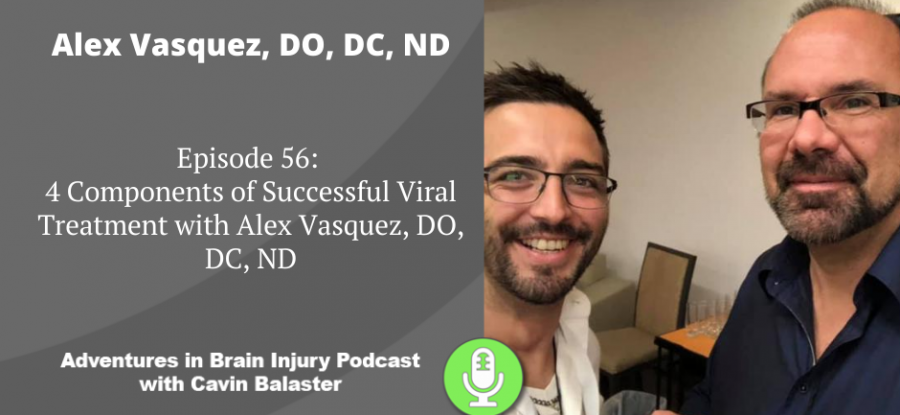
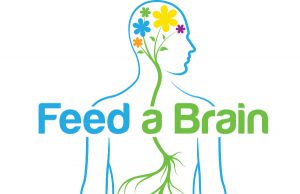
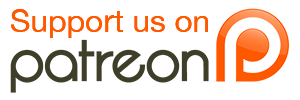

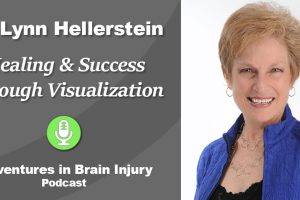
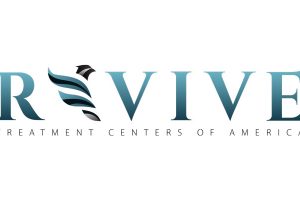
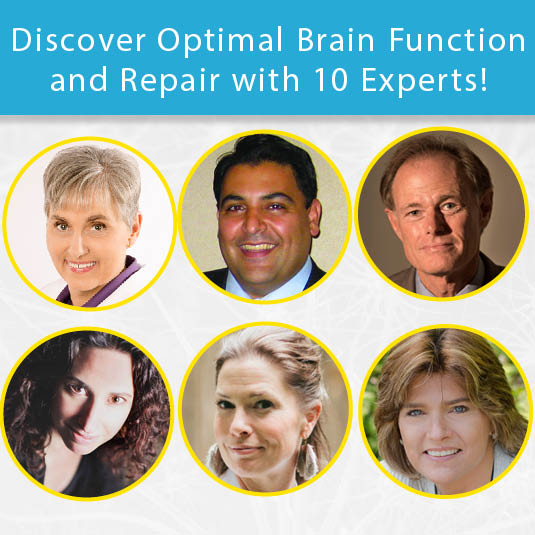
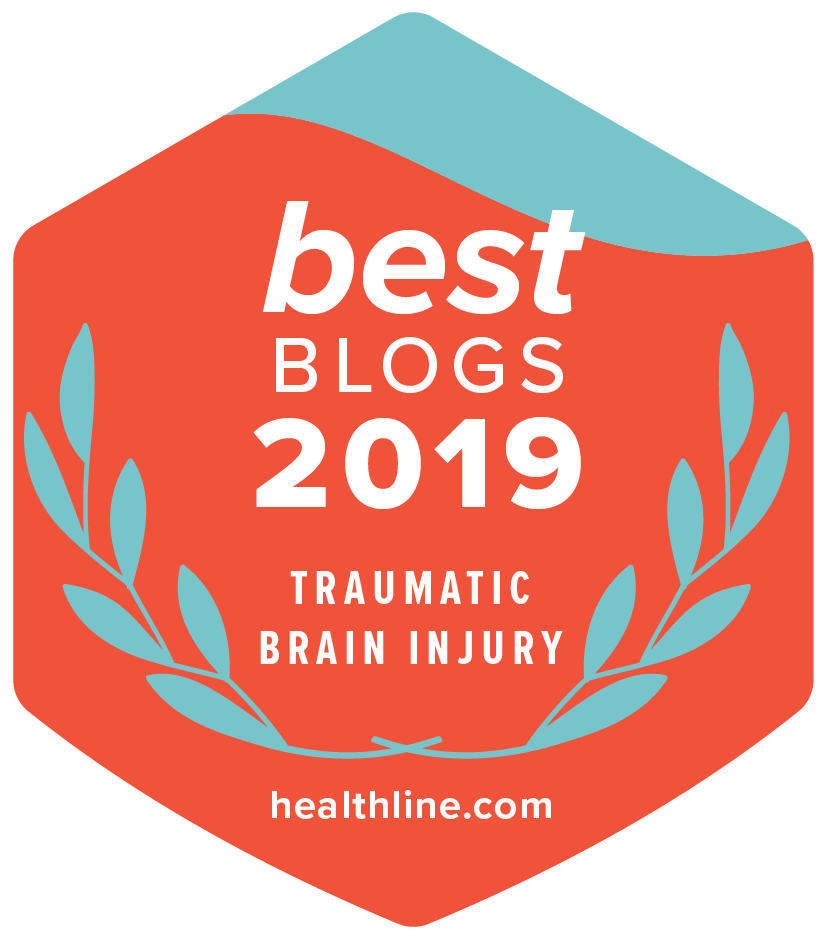
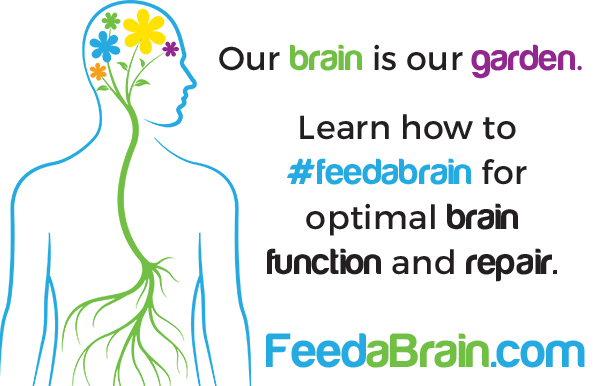
Leave a Reply
Your email is safe with us.